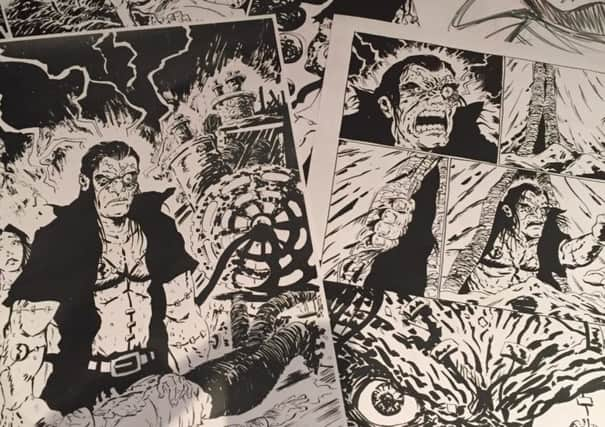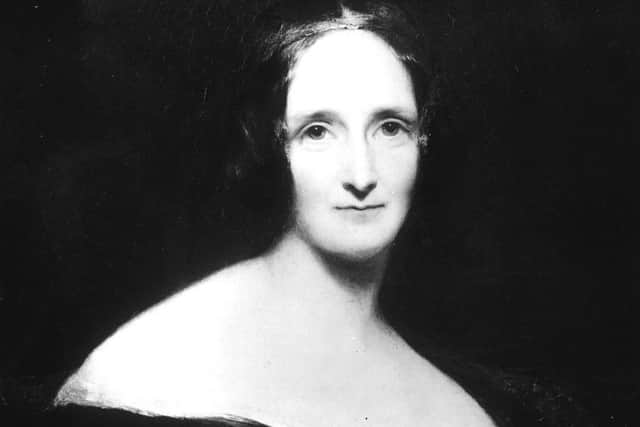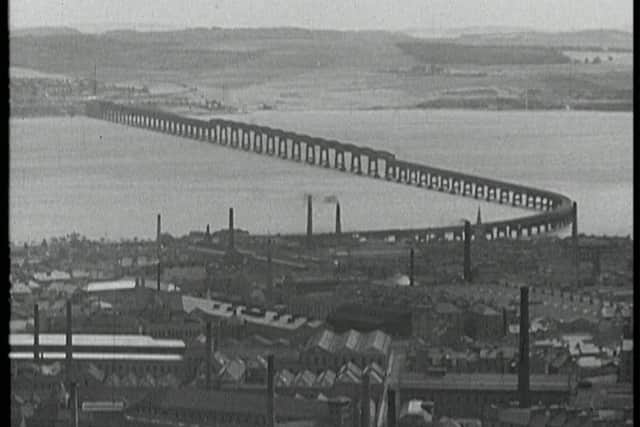Dundee links to Mary Shelley’s Frankenstein


But few know that only a couple of years before Frankenstein: The Modern Prometheus’s release, the author stayed in Dundee for nearly two years, incorporating the 19th century Tayside town’s industrial society into her text during her formative years.
The young Mary Shelley (nee Mary Wollstonecraft Godwin) arrived in Dundee in 1812 from London looking for rest and recovery from illness.
Advertisement
Hide AdAdvertisement
Hide AdShe was housed by family friend William Thomas Baxter at “The Cottage” - a decently-sized home in Dundee’s Ferry Road that had originally been constructed as the Countess of Strathmore’s dower house.
Her comfortable residence during her time in Dundee was largely as a result of the Baxters’ involvement in the city’s textile trade, with the presence of a plaque on South Baffin Street commemorating this link between the author and Tayside.
Such was the impact of her Scottish stay that “The Cottage” was even mentioned within the text of Frankenstein. Her view of the River Tay would have been unimpeded by the yet-to-be built railway line at this point.
Now, a little over 200 years after her first arrival in the city, the University of Dundee will host “Mary Shelley’s Dundee: Re-animating a City” as a highlight of Being Human 2015.
Dundee’s landmark celebrations include the production and exhibition of a new comic, as well as film screenings and theatrical adapations of the Shelley classic.


With a student-led reading group and film screening of The Bride of Frankenstein starting things off last week, a comics workshop and exhibition at The McManus: Dundee’s Art Gallery and Museum will draw the Shelley celebration to a close on 21 November.
Dr Daniel Cook, one of the University’s English lecturers and organiser of the Dundee programme, said: “We look forward to bringing new attention to the life and works of Mary Shelley, the mother of modern science fiction, at a time of substantial civic and creative regeneration taking place in a city that she says stirred ‘the airy flights’ of her young imagination’.
“We still hear about ‘Frankenfood’ and ‘Frankenscience’, showing how the ethics of science and the public perception of scientific progress in fields such as food production and human reproduction are influenced by this remarkable book.
Advertisement
Hide AdAdvertisement
Hide Ad“This is a way of highlighting the role that the humanities can play in understanding and addressing the issues that the fast pace of technological change raise, such as what it actually means to be a human.”


Those of a scientific mind will also be treated to a consideration of Frankenstein’s contribution to ethics in science at Dundee Science Centre.
Dr Chris Murray of the University of Dundee is also the Director of the Scottish Centre for Comics Studies. He has worked with students to produce “Frankenstein Begins”; a comic that charts Shelley’s time and inspirations while in Dundee. The extraordinary story is also told by a play written by Murray, which will be performed at the McManus on Saturday 21 November.
Dr Murray said: “The timing of this [event] is particularly meaningful, as it just over two hundred years since Mary Shelley left the city, and this year the University launched its new Science Fiction Masters which will complement the innovative Masters in Comics Studies.
“‘Mary Shelley’s Dundee’ will champion the excellence of humanities research being undertaken in Scotland and help to demonstrate the vitality and relevance of this today.


“Forty-one grants have been awarded to universities and cultural organisations across the UK to participate in the 11 days of Being Human. This funding will help the University bring together researchers and the local community to engage with the Humanities.”
Two walking tours of “Dead Dundee” will be held on Sunday 15 and 22 November to revisit some of the city’s landmarks which Shelley would have experienced in her day.
The stage performance of Mary Shelley’s Dundee sees the curtains raise on Saturday 21 November, with the same day hosting the “Frankenstein Begins” comics workshop and exhibition.
Advertisement
Hide AdAdvertisement
Hide AdWhile all of the events are free, some do require ticketing due to limited capacity.
After last year’s inaugural event, Being Human is supported by the Arts & Humanities Research Council (AHRC), and the British Academy (BA) with support from the Wellcome Trust in an effort to encourage contemporary thinking in the humanities.
More information about the Dundee events is available at https://www.facebook.com/maryshelleysdundee/.